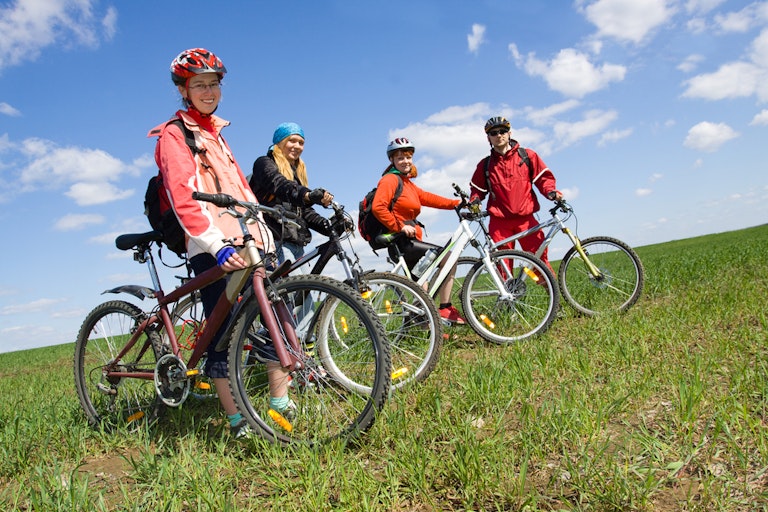How to Be an Eco-Friendly Student

University is a great time to become eco-friendly because you have more control over your lifestyle than you’ve likely ever had before. Being eco-friendly means paying attention to all the decisions you make — large and small — which can involve a huge range of activities. Start with just a few changes and build up gradually with these ideas.
1. Use a Bike
Whenever possible, ditch the car and go by bike. If you don’t have one already, you can purchase a secondhand bike. Alternatively, you may be able to join a bike-share program. Biking is a great way to exercise, it’s relaxing, and it’s an option when your destination is a little too far to walk.
2. Reuse Water Bottles and Coffee Cups
Drinking plenty of water throughout the day is a great practice, but you’ll add to your carbon footprint if you’re always purchasing this water. You can save money and become more eco-friendly by carrying a bottle with you wherever you go. Just be sure to purchase a reusable one rather than refilling a disposable bottle — it will last longer and it’s more hygienic, since disposal bottles are not intended for reuse.
Similarly, if you buy coffee most days, it’s worth investing in a reusable coffee cup. You may even receive a discount for bringing your own mug, especially if you buy your coffee on campus. For a lightweight, extra eco-friendly option, look for a cup made of bamboo fibres.
3. Save Water
There are multiple ways you can save water, but the most significant tends to be showering, since this uses a huge amount of water every minute. If you take particularly long showers, you may like to start timing yourself and regularly cutting down by a minute.
You can also save water on laundry by only washing full loads (although using cold water is the most eco-friendly tactic of all). Finally, turn off the water while you’re brushing your teeth.
4. Reduce Clothing Waste
It can be tempting to buy a piece of clothing because it appeals in the moment, but it isn’t a sustainable option if you only wind up wearing it once. Think carefully before purchasing anything. For a piece of clothing to be an eco-friendly choice, you should wear it at least 30 times. If you struggle with this (perhaps you often find something that looks great in the store, but you find you dislike it later), buy secondhand clothing. Furthermore, instead of throwing out clothing you no longer want, donate it. You could even organize clothing exchanges with other students.
5. Turn Off the Lights
Get into the habit of turning off the lights whenever you leave a room and check all the lights are off before you leave your apartment. It’s particularly important to turn off lights in the summer because they can contribute to heat and cause you to use more energy cooling your apartment.
6. Eat More Vegetarian Meals
Many people never try being vegetarian because they feel it would be impossible to go without meat. Even so, this doesn’t mean you can’t reduce your meat consumption. After all, there’s no need to have meat with every meal — there are plenty of delicious and filling vegetarian meals you can try. You may like to start out by eating just vegetarian food one day a week and gradually increase to more days. If you replace meat with vegetables and grains, you’ll improve your diet as well as reducing greenhouse gas emissions.
It’s easier to be eco-friendly when you live near campus and prepare most of your own meals. For UWaterloo off-campus housing, there’s MyRez. It’s a short walk from campus, you can buy what you need for meals on site at the Avenue C grocery market, and there’s a place to safely store your bike. Book a video tour to check out the apartments and onsite amenities.
Ready to apply?
Tell us your apartment preferences and we will do everything we can to place you in the unit that’s best for you.
Apply Now